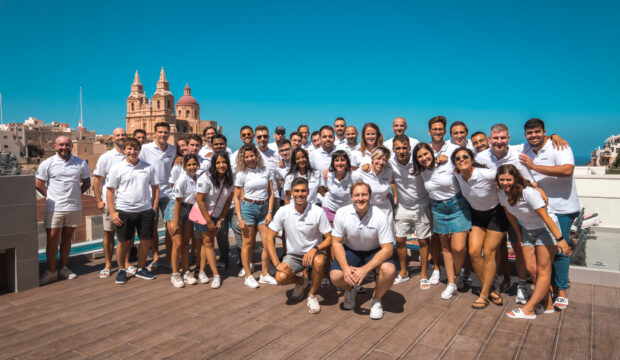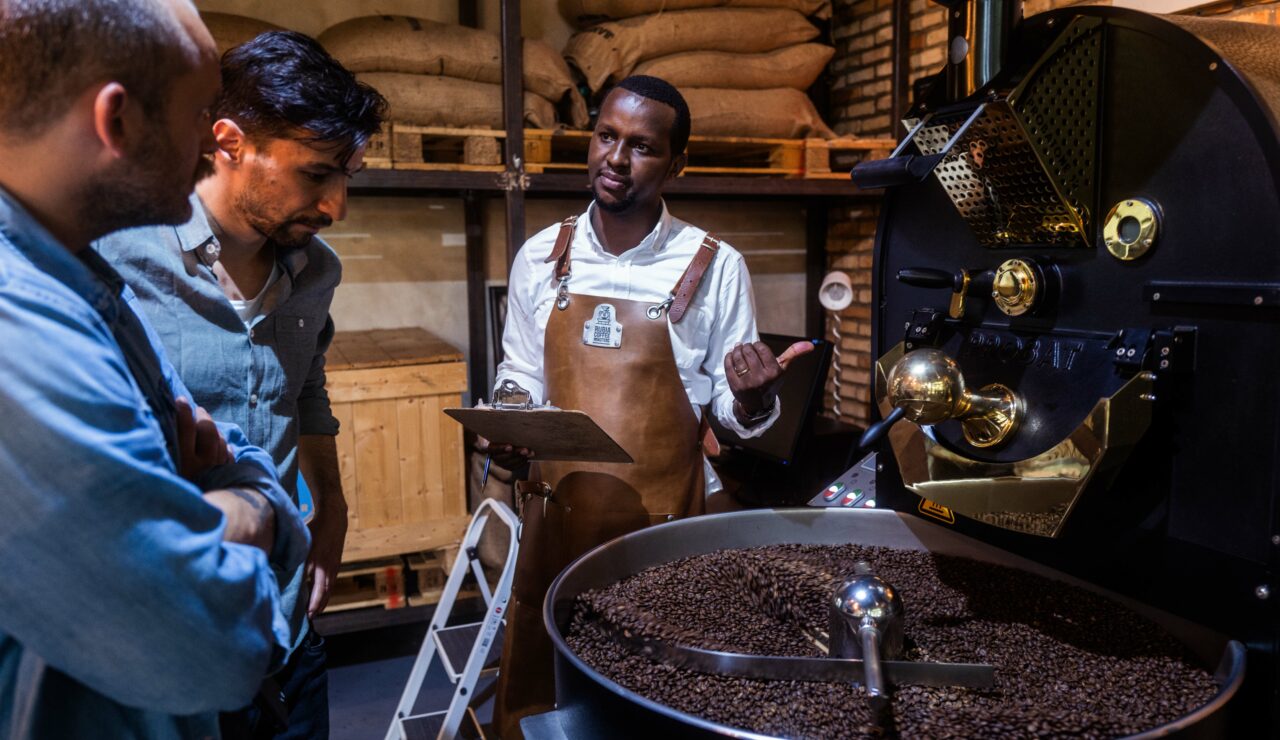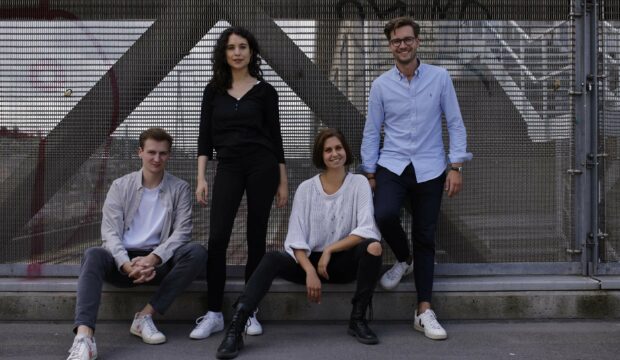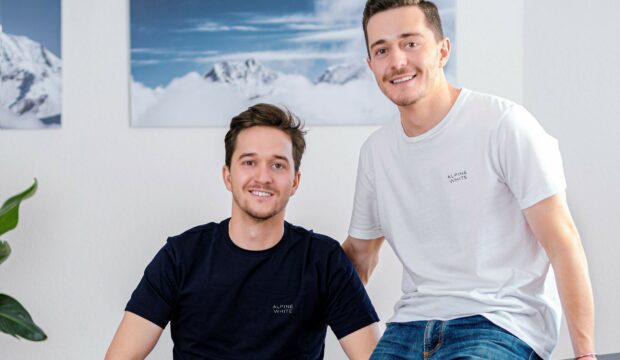
Marcel Lorenz, CEO & Founder of Coffee Annan, talks to us about the company’s mission, sustainability, and collaboration with LEXR.
What are Coffee Annan’s mission and vision?
Our mission is very clear. The status quo is that 99 percent of all coffee is exported as raw material (green beans). The consequence is that 90 percent of the growing countries still depend on third-party financial support when they would have enough natural resources to be self-sustaining. We enable African producers free market access to European markets. This includes developing roasting profiles that are a good fit for European customers. In addition to this knowledge transfer, we also offer European customers the opportunity to buy coffee from African producers. We want to answer the following questions: “I would like to buy my coffee directly from the producer so that the added value stays local, but how do I do that?”‘ “How do I find the right coffee?” “How do I make sure the quality is always the same?” “How do I get reasonable shipping terms?” And that’s where the Coffee Annan crowd-shipping platform comes in. We collect orders from our customers every month in a subscription model and distribute them to our customers at lightning speed. Regarding vision – we want to become the #1 go-to source for coffee producers in growing countries and then scale so that it becomes normal to ask, “was this coffee roasted in the country of origin as well?” The goal is to decolonize dusty supply chains.
How did you start Coffee Annan?
Coffee Annan is a product of many mistakes (laughs). I’m originally a chemist and was just between jobs. I then moved to Warsaw and took some time off there. There we had a terrible coffee capsule machine in the shared apartment, and since I’m a material chemist, I thought, “I can do that 1000 times better,” but then I failed brutally. Still, it was the beginning for me to get involved with coffee. I became aware of Specialty Coffee, and that was actually the first time I really enjoyed coffee. I then read more and more about Specialty Coffee, wanted to know more and more about it, and tried more and more. And then I thought to myself, “Hey, I want my own Speciality Coffee brand.” I realized that the real, fundamental problem is in the supply chains. If you really want to do fair trade, you have to start with the producers and ensure that as many process steps as possible occur in the country where the coffee is grown.
Sustainability and climate neutrality – how do you fulfill these points?
So, first of all, we have to try to prevent as much CO2 as possible from being produced in the first place. That’s why we rely on organic farming and, if possible, agroforestry to have less CO2 during cultivation itself. But CO2 can also be saved in our day-to-day work. For example, we make our business trips by train whenever possible and not by plane. We always try to balance what makes ecological, economic, and social sense. At the end of the year, we then determine our carbon footprint with the organization “Menschen für Menschen” and offset it. “Menschen für Menschen” have been doing development work in Ethiopia for over 30 years.
Reconciling social, ecological, and economic sustainability is not easy at the beginning. Naturally, you want to solve all three aspects simultaneously but have limited resources. We focus on the social problem and want to achieve fair trade and increase value added in the country of origin. For the rest, where we are not specialists, we cooperate with partners and do collaborations. As mentioned before, we do the carbon footprint and carbon offsets with “Menschen für Menschen” in Ethiopia. In Uganda, we will support other projects. In addition, from 2023, we will switch to sea freight for transport and thus continue to reduce our carbon footprint. It’s challenging to communicate that you want to build a fair and sustainable business but then import by plane. However, if we hadn’t done that, we would have gone out of business after six months because we were only importing small quantities, which made sea transport impossible. This is also an important learning: in the beginning, you must focus on the problem and what you need and want to solve. In January 2023, we will fill the first container. Then, not only will more value remain in the country where the coffee is grown, but our carbon footprint will be significantly lower than that of most coffees.
Your coffee subscriptions for the office – how do they work exactly?
The subscription is mainly to estimate how much coffee we need for this month, how much for the next, etc. But also so that we can offer the coffees at a reasonable price. Every month we import the right amount and distribute it to our customers in Switzerland, Germany, and Austria. Our order processing is automated. This allows offices of any size to participate and purchase their coffee directly from the producers. Our customers see where their money is going and, through their purchasing decisions, help to increase value creation in the growing countries. Ultimately, we want to move away from Financial Aid and donations to African countries. Instead, we want producers to participate at eye level.
What are your ambitions for the future, what are your next goals?
Huge ones! One thing is for sure: digitalization will play a big role. Together with partner companies, we want to build an end-to-end connection between end customers and producers. So that every step can be tracked. You should be able to see, “What path did my coffee take to get to my house, how much CO2 was created in the process, and what was done to offset that?” The second would be to expand the trade model to other colonial goods, for example, producing chocolate instead of trading cocoa.
How was your experience working with LEXR?
Very good. LEXR are “the not so boring lawyers” for me. I really appreciated the good atmosphere, transparent prices and fast communication. We set up a convertible loan as part of our first financing. On LEXR’s advice, we directly converted the GmbH into an AG as well. Looking back, a smart decision.
Related
100+ companies, both big and small, are starting and growing their business with LEXR.
Let’s Go!
Book a free, non-binding discovery call to discuss how we can help you achieve your business goals.
Or feel free to reach us directly via email at [email protected].


